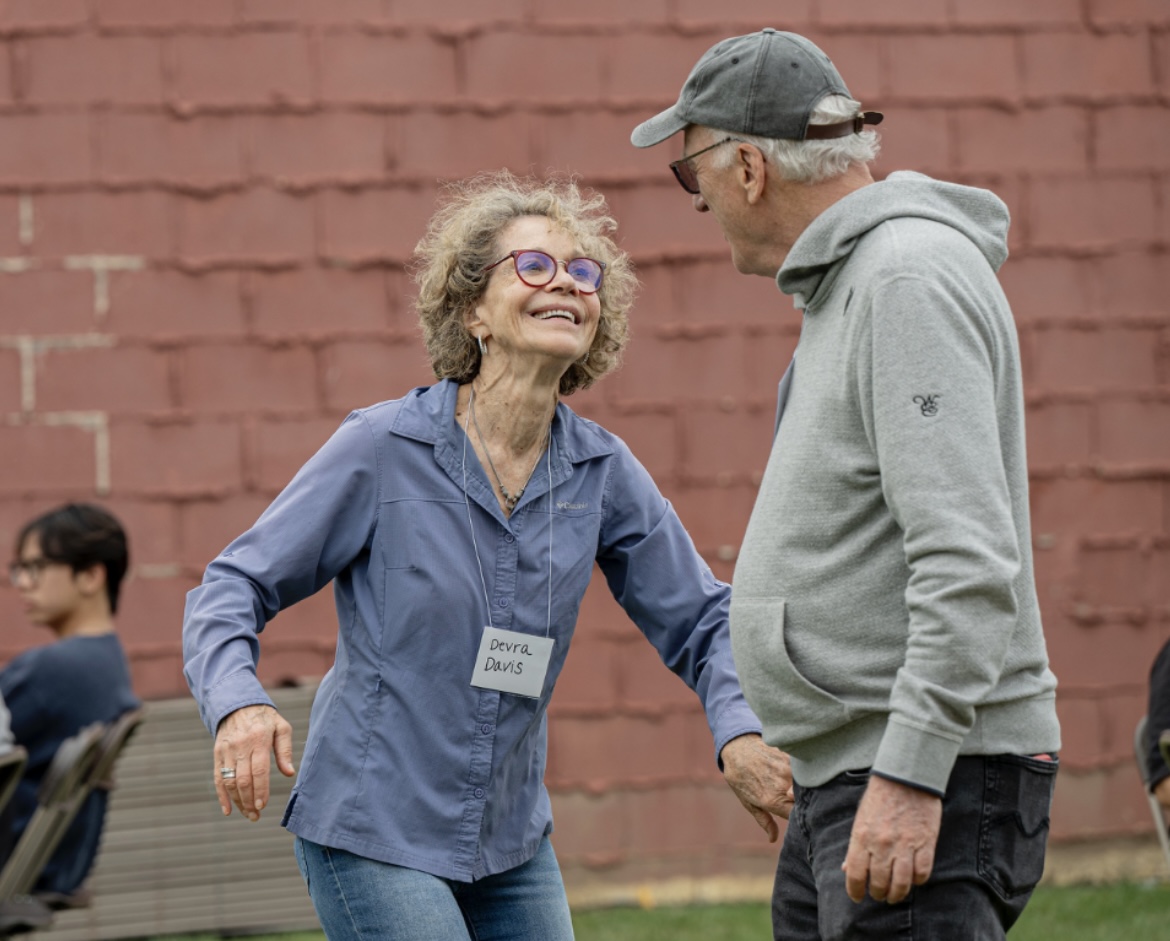This past weekend, Oberlin College celebrated the creation of a new professorship in Economics that was donated to the College by two Oberlin alumni and their families: Frank, OC ’64, and Paula Sloan; Richard Morgenstern, OC ’66, and Devra Davis. The donation will fund a new assistant professor position in applied microeconomics, which will be named the Morgenstern-Sloan Professor of Economics. The new professorship is held by current Assistant Professor of Economics Emir Murathanoglu, who received his Ph.D. in Business and Economics this year from the University of Michigan.
“The Morgenstern-Sloan Professorship in applied microeconomics enhances Oberlin’s leadership in research and teaching in a field of economics focused on tackling the world’s most important socio-economic challenges,” Dean of the College of Arts and Sciences David Kamitsuka said in an email to the Review. “Generations of Oberlin students will deeply benefit from the generosity of Frank and Paula Sloan and Richard Morgenstern and Devra Davis.”
Frank Sloan and Richard Morgenstern both majored in Economics at Oberlin in the ’60s and went on to have careers in the field. Sloan received his Ph.D. from Harvard University where he was introduced to the economics of the health, medical, and pharmaceutical industries.
“I’ve been in academics virtually all of my life,” Sloan said. “My last stint was at Duke University in Economics, but I had appointments at five schools. Because I enjoy interdisciplinary work, a lot — about half — of my publications are medical or health related. I’ve taught graduate students and undergrads, and done consulting with government and private consulting firms. But I really missed the academic world and went back and never left.”
Morgenstern had no intention of majoring in Economics when he arrived on Oberlin’s campus, and instead found the department through a liberal arts requirement.
“I became an Econ major because I was very inspired by a class I took as a distribution requirement,” Morgenstern said. “I didn’t say, ‘Oh, I want to study economics.’ It was, ‘Gee, I have to take a class that meets this certain criteria.’ So I took an Economics class. My first teacher, Ben Lewis, was a fabulous teacher. And he really motivated me to pursue work in the field. I worked very closely with a number of faculty: Bob Piron, Hirsch Kasper, and Tom Dernburg were the three professors who were most helpful in shepherding my career and easing my way into graduate school. So I’m very thankful for that mentorship, and that’s really a strong motivating factor for me to be making this contribution.”
Morgenstern went on to receive his Ph.D. from the University of Michigan. After receiving early tenure at Queens College, City University of New York, he moved into governmental work at a think-tank. He became the head of the policy office of the Environmental Protection Agency and acting deputy administrator. In the 2000–2001 academic year, Morgenstern and his wife, Davis, an epidemiologist and toxicologist, taught at Oberlin in the Economics and Environmental Studies departments, respectively, while their daughter, Lea Baylis, OC ’02, was a student.
Sloan and Morgenstern met four years ago when Assistant Vice President for Principal Giving Will Gravitt put the two in contact with each other. Both Sloan and Morgenstern had kept in touch with Professor Emeritus of Economics Hirschel Kasper, who passed away in April, and had individually communicated to Gravitt their desire to contribute philanthropically to the College.
“I gave Richard Frank’s phone number, and they called each other,” Gravitt said. “A few months later, … the two of them decided that their families would like to co-fund the professorship.”
Gravitt also commented that an endowed professorship is a unique gift to the College from alumni in that it requires a large sum of funding, and that it addresses the College’s largest operational expense: faculty salaries.
“We’re talking about anywhere between two and four million dollars to establish a professorship at Oberlin,” Gravitt said. “… Personnel is the most significant expense at Oberlin. Being able to offset faculty costs is a really, really big part of our philanthropic effort. So if we can do that through operational support or through endowed professorships, that really helps to create stability in a department long-term. We’re about to enter the third century of Oberlin. Our whole mission is to create stability in the operational side so that we can last long into that third century.”
Sloan and Morgenstern wanted their donation to go toward an assistant professorship, a position that would provide an opportunity for new and young economists to launch their careers in academia.
“They wanted this to create some stability in a younger professor or younger faculty member’s career,” Gravitt said. “So the way this chair is designed is that, after five years, it will rotate to someone new. … So the person in this position may move on to become a full professor through the tenure process, but the chair itself will keep encouraging and strengthening the department with younger faculty. That was their main mission.”
Sloan and Morgenstern also wanted the assistant professorship to focus in applied microeconomics, which includes environmental and medical economics, in which the two made their careers, as well as labor, urban, education, and industrial organization economics.
“These fields are ultimately very practical,” Sloan said. “Consumers need to be protected, and economists are very much at the forefront of that.”
While Paula Sloan and Devra Davis did not attend Oberlin, they both shared admiration for the institution and excitement about their contribution to the professorship.
“I really like this project that we’re doing because it’s being given to a younger person,” Sloan said. “Most chairs are given to older people. And I think that’s going to make a real difference in the department.”
Morgenstern and Sloan both attended multiple institutions of higher education, but they chose to endow this professorship at Oberlin because of their belief in the liberal arts education.
“[When I graduated], I was interested in changing the world,” Sloan said. “I mean, maybe looking back, I didn’t change it, but I think we change it through our students and through the influence we have.”










